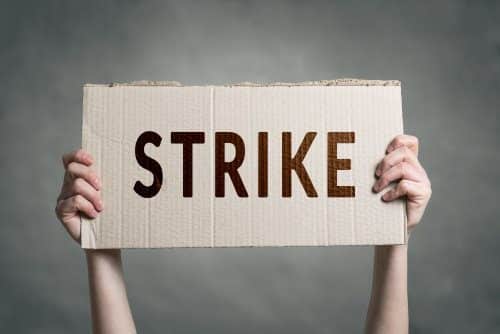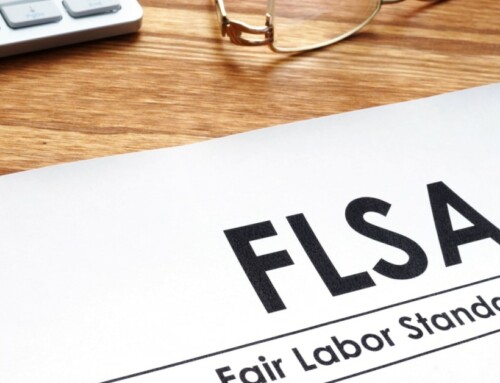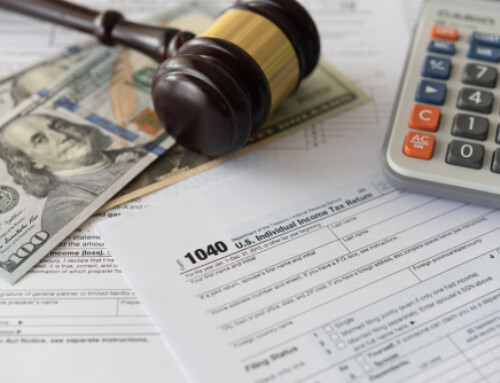Employee strikes can be both disruptive and expensive. While employees have the right to strike in certain circumstances, the right to strike is not absolute, and employers have clear legal rights when employees attempt to strike in violation of federal law. For employers in South Carolina, knowing how to respond to a strike (or purported strike) is critical. Responding both quickly and appropriately can be essential for mitigating potential financial and reputational harm.
Employees’ Right to Strike is Governed by the National Labor Relations Act (NLRA)
Employees’ right to strike is governed by the National Labor Relations Act (NLRA). Specifically, Section 7 of the NLRA provides in pertinent part:
“Employees shall have the right to self-organization . . . and to engage in other concerted activities for collective bargaining or other mutual aid or protection, and shall also have the right to refrain from any or all of such activities except to the extent that such right may be affected by an agreement requiring membership in a labor organization as a condition of employment . . . .”
However, as the National Labor Relations Board (NLRB) explains, “the law not only guarantees the right of employees to strike but also places limitations and qualifications on the exercise of that right.” So, while the NLRA recognizes specific lawful grounds for exercising the right to strike, it also identifies both (i) unlawful grounds for initiating an employee strike and (ii) circumstances in which it is unlawful for employees to initiate a strike on lawful grounds.
Lawful Grounds for an Employee Strike
The lawful grounds for initiating a strike fall into two main categories. The NLRB defines these as (i) economic strikes and (ii) unfair labor practice strikes.
1. Economic Strikes
Employees can initiate an economic strike to obtain additional compensation, better working hours or working conditions, or other economic concessions. An employer cannot terminate employees involved in an economic strike, but it can replace them. The NLRB states, “If [an]employer has hired bona fide permanent replacements who are filling the jobs of the economic strikers when the strikers apply unconditionally to go back to work. The strikers are not entitled to reinstatement at that time. However, if the strikers do not obtain regular and substantially equivalent employment, they are entitled to be recalled to jobs for which they are qualified when openings in such jobs occur if they, or their bargaining representative, have made an unconditional request for their reinstatement.”
2. Unfair Labor Practice Strikes
Employees can also initiate a strike to protest their employer’s unfair labor practices. Under Section 8 of the NLRA, unfair labor practices include:
- Interfering with employees’ rights under the NLRA, including the right to join or form a labor organization (union)
- Discriminating concerning hiring, tenure of employment, or any term or condition of employment to encourage or discourage membership in a labor organization
- Discharging or discriminating against an employee who files charges or provides testimony under the NLRA
- Refusing to engage in collective bargaining with employee representatives
When employees initiate an unfair labor practice strike, the employer can neither discharge nor permanently replace the striking employees. As the NLRB explains, “absent serious misconduct on their part, [striking employees] are entitled to have their jobs back even if employees hired to do their work have to be discharged.”
Unlawful Grounds for an Employee Strike and Other Prohibitions
Various issues can render an attempted strike unlawful under the NLRA. For example, a strike may be deemed unlawful if:
- The strike has an unlawful purpose (i.e., the strike does not qualify as an economic strike or unfair labor practice strike);
- The strike violates a no-strike provision in a collective bargaining agreement (a contract with a union);
- The striking employees engage in serious misconduct (i.e., actual or threatened violence, or prohibiting personnel from entering or leaving a workplace) or deprive the employer of property rights; or,
- The strike is initiated to influence bargaining or recognition of a labor organization by another employer.
What Should South Carolina Employers Do When Faced with an Employee Strike?
When faced with a strike (or purported strike), South Carolina employers must react swiftly to protect themselves and execute an appropriate response. Generally speaking, the preliminary steps involved in responding to an employee strike include:
1. Determine Whether the Employees’ Collective Action Constitutes a Strike
First, it is necessary to determine whether the employees’ collective action constitutes a strike instead of a walkout, picketing, or other activity. While these are all closely related (and it will not always immediately be clear how employees’ collective action should be classified), a strike requires a particular type of response.
2. Determine Whether the Strike is Lawful
If it is determined that the employees’ collective action constitutes a strike, then the next question is whether the strike is lawful. If the strike is lawful, the employer must respect the striking employees’ rights under the NLRA (and otherwise comply with the statute). If the collective action does not qualify as a strike, then the NLRA’s protections for striking employees will not apply.
3. Assess Potential Responses
Based on the nature of the participating employees’ collective activity, the employer must next assess potential responses.
4. Engage with the Employee Representatives As Appropriate
In most cases, it will make sense to engage with the participating employees’ representatives. However, the scope and nature of this engagement will depend heavily on the specific circumstances presented. For example, if the strike is lawful, then it may be necessary to enter into negotiations.
5. Ensure Compliance with Discharge/Replacement Rules as Necessary
If the strike is lawful, the employer must also ensure that it complies with the applicable discharge and replacement rules (remember, these are different for economic strikes and unfair labor practice strikes). Violating these rules during or after a strike can potentially lead to mandatory reinstatement, civil liability, and other consequences.
Speak with a South Carolina Employment Lawyer at Gignilliat, Savitz & Bettis LLP
At Gignilliat, Savitz & Bettis LLP, our labor lawyers represent South Carolina employers in all types of collective bargaining, labor relations, and labor crisis management matters. If you have questions about your company’s legal rights or responsibilities to an employee strike (or purported strike), we encourage you to call 803-799-9311 or contact us online for a confidential consultation.






